Facts About 'Blue Light': How to Damage Skin and Ways to Avoid
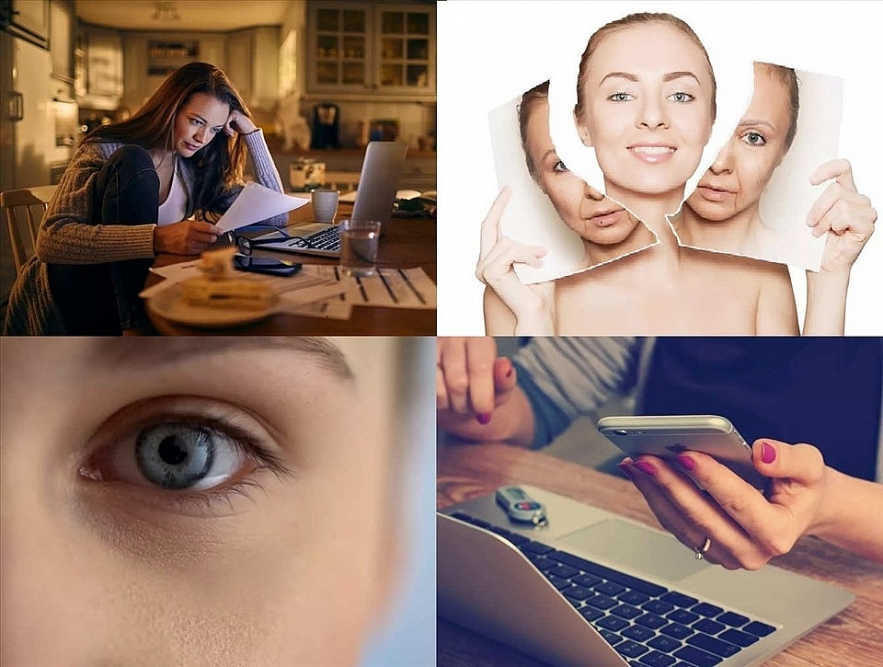 |
| Studies suggest blue light from cellphones and computer screens can cause eye-strain, but it’s less clear how tech time may be affecting your complexion. |
| Table of Content |
Step outside and expose to sunlight; turn on the electrical switch in the house; turn on your computer, phone, or other digital device - all of which result in your eyes being exposed to a variety of visible (and sometimes invisible) rays of light with a variety of effects.
Previous studies have shown that most worries about premature aging and skin cancer stem from the damaging UVA and UVB rays emitted by sunlight. However, scientists have recently discovered that these may not be the only rays of visible light people need to be concerned about. Blue light — emitted by both the sun and digital devices — could be wreaking havoc on your skin health.
Working on laptops and mobile phones all day can take a toll on our health, it strains our hand muscles, leads to dry eyes, neck pain and can also lead to weight gain.
Furthermore, constant device use without a break can also affect our mental health, leading to mood swings and irritability.
Some of the information below will tell us about the characteristics, harms as well as ways to avoid blue light from computers and mobile phones.
What is Blue Light and Features
Blue light, part of the spectrum of visible light, is a high-energy, short-wavelength light. Blue light is a portion of the visible light spectrum (380 to 500 nanometers) that is contained in sunlight, but it is also given off by indoor lighting [and] common electronic devices, like computer screens and smartphones.
Blue light is thought to penetrate deeper into the skin than UV light but fortunately is not associated with the development of skin cancer,” adds Joshua Zeichner, MD, the director of cosmetic and clinical research in the dermatology department at Mount Sinai Hospital’s Department of Dermatology in New York City.
Most of the blue light people are exposed to comes from the sun. The amount of blue light emitted by devices is “only a fraction” of that given off by the sun, but the problem is that we are constantly spending time on and carrying around these devices and keeping them close to our face and head, according to health experts.
In the past, people were concerned about invisible ultraviolet rays that could cause skin cancer. Currently, blue light emitted by electronic devices has a cold tone, is visible light, has a higher frequency, shorter wavelength, so it can damage skin cells and be difficult to overcome. .
Blue light is also present in the sun's rays, light emitted by tubes, LEDs, and all sorts of gadgets like TV screens, smartphones, tablets, and computers.
However, the risk of skin cell damage from laptops and cell phone screens is higher because they are closer to your face than other devices.
Related: 12 Fascinating Facts About the Skin
Facts About the Harmful Effect of Blue Light on Skin
The ultraviolet rays present in the sun's rays directly damage the DNA of cells, while blue light destroys collagen by inducing oxidative stress. Previously, health experts believed that blue light could only cause insomnia and affect vision. The effect of this type of light on the skin has only been discovered recently.
When chemicals present in our skin absorb blue light, a reaction occurs that results in the production of unstable oxygen molecules that damage the skin. They lead to tiny holes in collagen that make us look older.
Studies also show that blue light can also lead to hyperpigmentation. This problem usually occurs in people with medium to dark skin, while those with fair skin are relatively unaffected.
How Does Blue Light Affect Human Health?
The high-energy blue light with a wavelength between 415 and 455 nanometers passes through the cornea and lens to the retina. In the process, it can cause diseases such as dry eye, cataracts, and age-related macular degeneration. Study authors wrote that it may even affect hormone production, creating an imbalance that can negatively affect sleep quality, according to the research results of scientists published in December 2018 in the International Journal of Ophthalmology.
"It's like [sun exposure] — the damage is cumulative," says Ava Shamban, a board-certified dermatologist in Beverly Hills. And just as blue light can impact your sleep cycle, it can also disrupt the circadian rhythm of skin cells. Your skin's regenerative cycle can get thrown out of whack, potentially causing more skin damage over time, according to a study published in the International Journal of Cosmetic Science.
| The scientists now suggest that smartphones and computer screens can cause the following skin issues: ♦ Hasten the aging of the skin via ROS. ♦ Cause skin wrinkles by breaking down collagen and elastin protein bonds in the skin layer. ♦ May contribute to brown spots on the skin (akin to sun exposure). ♦ It may cause hyperpigmented patches over the skin by stimulating melanocytes (pigment-producing cells) in the skin layers. |
How to Reduce the Harmful Effects of Blue Light on Skin
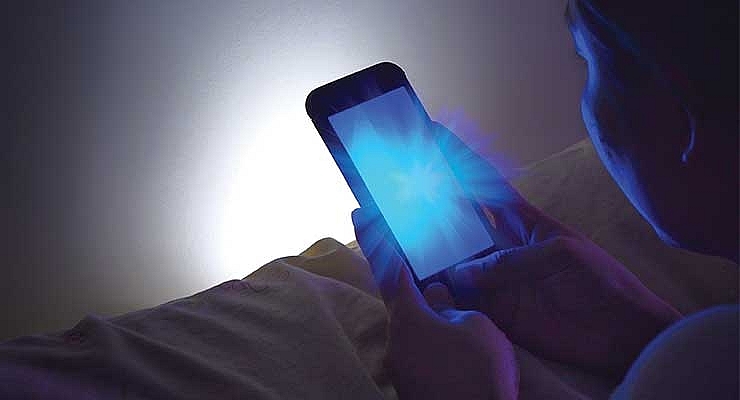 |
| Blue Ligh Can Cause Damage to the Aging Skin |
The simplest way to reduce skin damage is to limit the amount of blue light emitted by devices. Swap out LED bulbs for versions that emit less blue light.
Experts say the best way to prevent the harmful effects of blue light is to reduce screen time. In addition, you can actively prevent blue light by reducing the screen brightness on your phone or wearing headphones and keeping your phone in your pocket to prevent blue light from hitting your face directly.
You can use sunscreens that have at least 30 SPF and contain zinc oxide or titanium dioxide to block blue light. Zinc oxide and titanium dioxide are the only two active ingredients that are recognized as safe and effective when used in sunscreens.
In addition, skin care products containing antioxidants such as vitamin C, vitamin E ... have also been shown to block the negative effects of free radicals that cause oxidation caused by blue light.
What is the Treatment?
Because blue light causes oxygen species to react to break down collagen, doctors recommend using skin care products with antioxidants like vitamin C, which will help combat the oxidative stress caused by visible light. out. In addition, iron oxide also has a similar effect.
Research indicates that vitamin C can help prevent hyperpigmentation, and iron oxide helps reduce sensitivity to blue light.
Do skin-care products targeting blue light really work?
A wave of blue-light-specific products that work to block the high-energy wavelengths radiating from the sun and your digital screens is hitting the skin-care world. But the truth is, "these formulas are no different from other antioxidant serums," says some cosmetic chemists.
So is Blue Light Dangerous to Skin?
At the present time, there is not enough research to conclude how harmful blue light from cell phones and electronic devices is to the skin. However, all rays from the sun – including blue light – can be cause for concern for the skin.
The blue light effect on skin needs more research before we can draw any solid conclusions, though early evidence seems to suggest it has the potential to be damaging.
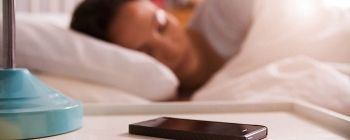 Harmful effects of putting smartphone in bed while sleeping Harmful effects of putting smartphone in bed while sleeping Putting smartphone in bed while sleeping? Well, that's definitely not a good idea. In fact, that habit of many people could pose a number of ... |
How to Protect Your Skin From Potential Blue Light DamageThe best way to protect your eyes from blue light when using devices is to take regular breaks with the "20-20-20" rule: Every 20 minutes, move your eyes to look at an object at least a little away. 20 feet at least 20 seconds. You can also use artificial tears when your eyes feel dry. If you're using your phone constantly - especially if you use your phone primarily for texting, emailing and browsing the web, one convenient way to reduce your blue light exposure is to use Use a blue light filter. These filters are available for smartphones, tablets, and computer screens, and they help prevent significant amounts of blue light emitted by these devices from reaching your eyes without affecting your visibility. screen. Some are made with thin tempered glass that also protects your device's screen from scratches. Wearing glasses while using a computer can also be helpful in reducing blue light exposure from computers and other digital devices. These specialized lenses are available without a prescription if you have no need for vision correction or if you regularly wear contact lenses for vision correction. Specialized glasses used when using computers may be specially prescribed to optimize vision, specifically for the distance at which you view your devices. If you are farsighted and regularly wear contact lenses, prescription eyeglasses with single vision lenses offer the added benefit of a much wider field of view to see the entire computer screen clearly. (Keep in mind, however, that this type of computer eyewear is intended solely for viewing objects within reach and cannot be worn for driving or other vision needs.) Additionally, some lens manufacturers have released special glare-reducing anti-reflective coatings that also block blue light from both natural sunlight and digital devices. In addition, optoelectronic lenses provide seamless protection from UV and blue light both indoors and outdoors, as well as auto-darkening in response to outdoor UV rays for increased comfort. and reduce glare. |
| A diet rich in antioxidants, such as green leafy vegetables and fruits, may have a role in protection against blue light-induced skin damage. |
Should You be Too Worried about Blue Light?
Some people's discomfort after looking at the screen is most likely due to digital eye strain. Most of us blink less when looking at screens, causing eye fatigue and dry eyes.
Blue light affects our body's circadian rhythm, our natural sleep and wake cycles. During the day, blue light wakes us up and excites us. But too much late-night blue light exposure from your phone, tablet or computer can make it harder to fall asleep.
That's why experts recommend trying to limit screen time to 2 to 3 hours before bedtime. Many devices have a night setting that minimizes blue light exposure in the evening.
Although people are often exposed to blue light from computers and phones, the biggest source of blue light is sunlight. Other sources include fluorescent lighting, compact fluorescent bulbs, and LED lighting. Exposure to blue light from screens is much less than blue light from the sun. Blue light is harmful to the eyes, but it is not more harmful than blue light from the sun.
Overexposure to UV rays increases the risk of eye diseases, eye damage and cancer. However, the effects of blue light are still being studied.
Some research suggests that not getting enough sunlight in children can affect growth and vision development. Some recent studies also show that not getting enough sun exposure can also increase the risk of nearsightedness (nearsightedness) in teenagers and young adults.
The anterior structures of the adult eye (cornea and vitreous) are very effective at blocking UV rays from reaching the light-sensitive, retina at the back of the eyeball. In fact, less than 1% of UV radiation from the sun reaches the retina, even if you don't wear sunglasses.
However, you need to remember, wearing sunglasses is very important to protect parts of the eye from damage that can lead to total eye damage...
On the other hand, almost all visible blue light passes through the cornea and lens to the retina.
Blue light exposure may increase the risk of macular degeneration
The fact that blue light penetrates the retina (inner lining of the eye) is important, because laboratory studies have shown that overexposure to blue light can damage cells. light-sensitive cells in the retina.
Blue light is harmful to the eyes, this causes changes similar to macular degeneration, which can lead to permanent vision loss.
Although more research is needed to determine when natural and artificial blue light is considered too much for the retina, many eye care professionals are concerned that blue light exposure from computer screens Computers, smartphones, and other digital devices can increase a person's risk of macular degeneration later in life.
Blue light contributes to digital eye strain'
Because of the short wavelength, high-energy blue light scatters more easily than other visible light, it is not easily focused. When you're looking at computer screens and other digital devices that emit significant amounts of blue light, this unfocused visual "noise" reduces contrast and can contribute to technical eye strain. number.
Research has shown that lenses that block blue light with wavelengths less than 450nm (blue-violet light) increase contrast significantly. Therefore, glasses with a yellow tint can increase comfort when you watch digital devices for long periods of time.
However, in reality, not all blue light is bad
Is all blue light bad for you? Why not block all blue light, all the time?
Many studies have also documented that exposure to blue light is also essential for good health. Research has shown that blue light enhances alertness, helps with memory and cognitive function, and elevates mood.
In fact, light therapy is used to treat seasonal affective disorder (SAD) - a type of depression that involves seasonal changes, with symptoms usually starting in the fall and continuing. through winter.
The light sources for this therapy emit bright white light containing significant amounts of HEV blue light.
In addition, blue light is important in regulating circadian rhythms - the body's natural wakefulness and sleep cycle. Exposure to blue light during the day helps maintain a healthy circadian rhythm.
But too much blue light late at night (reading novels on a tablet, for example) can disrupt this cycle, potentially causing insomnia and daytime fatigue.
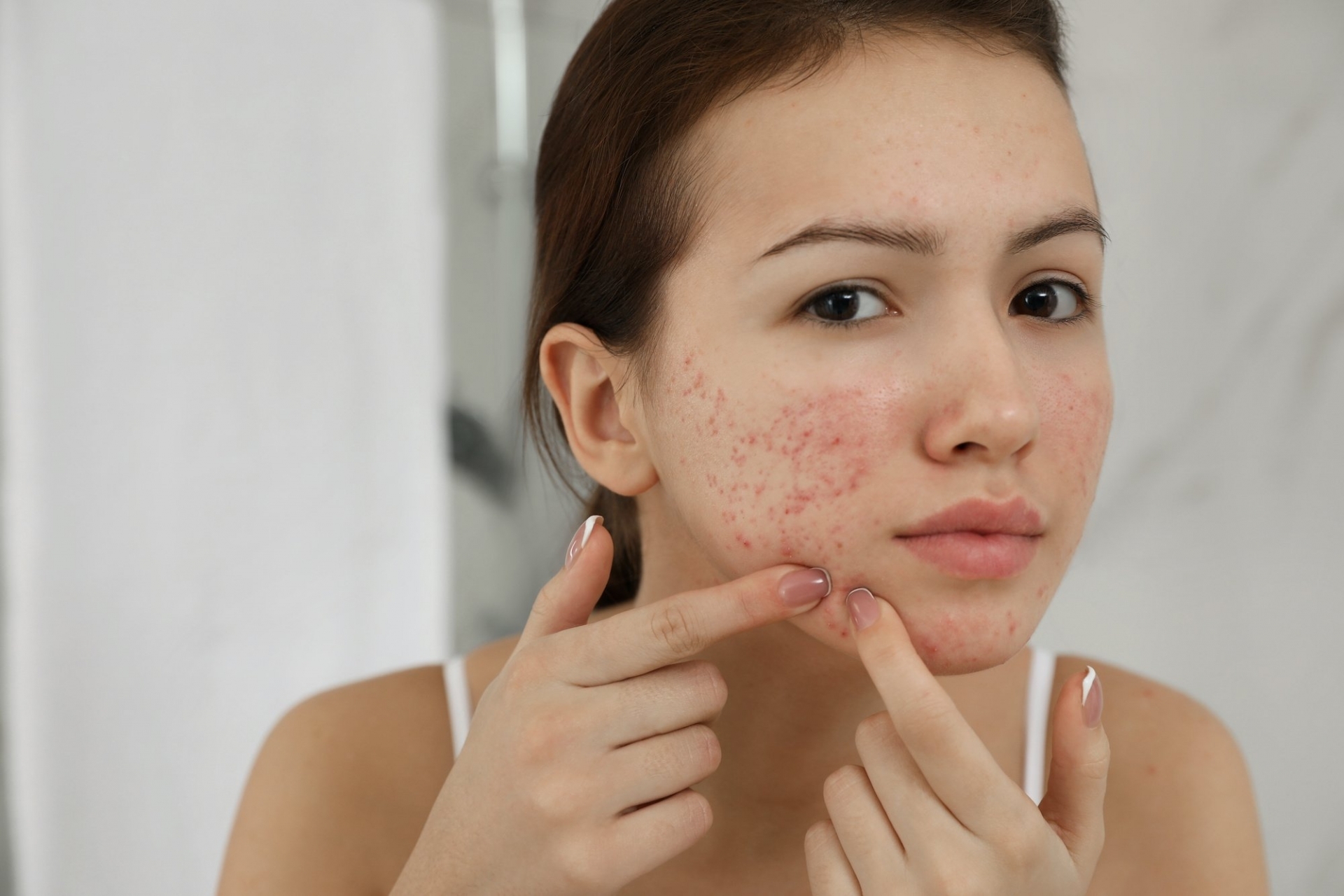 How To Remove Acne Scars: Simple Natural & Medical Treatments How To Remove Acne Scars: Simple Natural & Medical Treatments There are several tips to get rid of acne scars that you can do at home rignt now. |
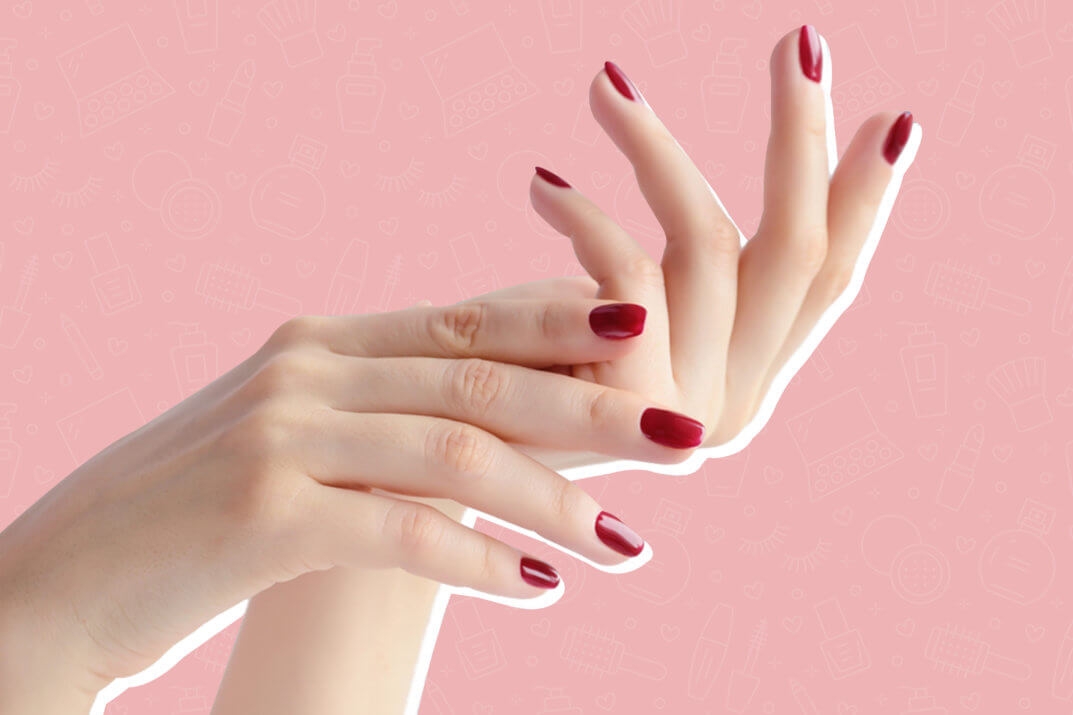 Tips To Keep Your Hands Looking Young Tips To Keep Your Hands Looking Young Looking at someone’s hands, we can guess their ages. No one wants to have hands that look older than their real age. Don’t worry, we ... |
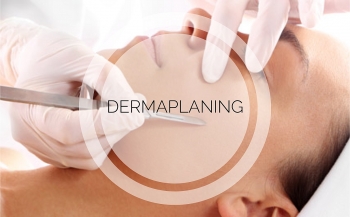 How to Safely Dermaplane At Home for A Younger-Looking Skin How to Safely Dermaplane At Home for A Younger-Looking Skin Dermaplane has become THE HOTTEST SKINCARE TREND when this super effective exfoliating treatment can bring us bright and luminous skin. However, do it yourself at ... |
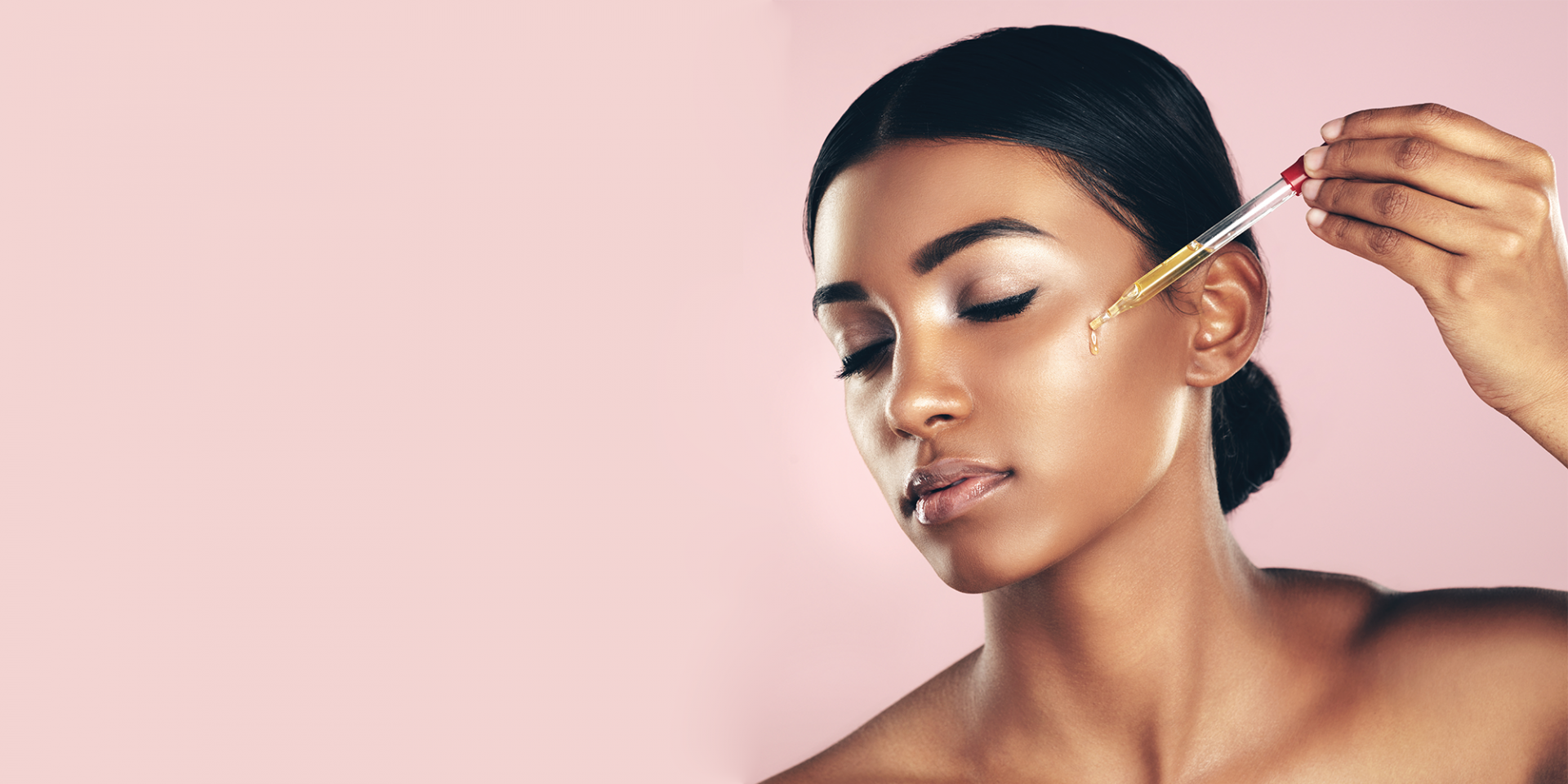 12 Fascinating Facts About the Skin 12 Fascinating Facts About the Skin Your skin is your largest organ and plays a vital role in detecting hot and cold, regulating your body temperature and protecting your muscles, bones ... |























